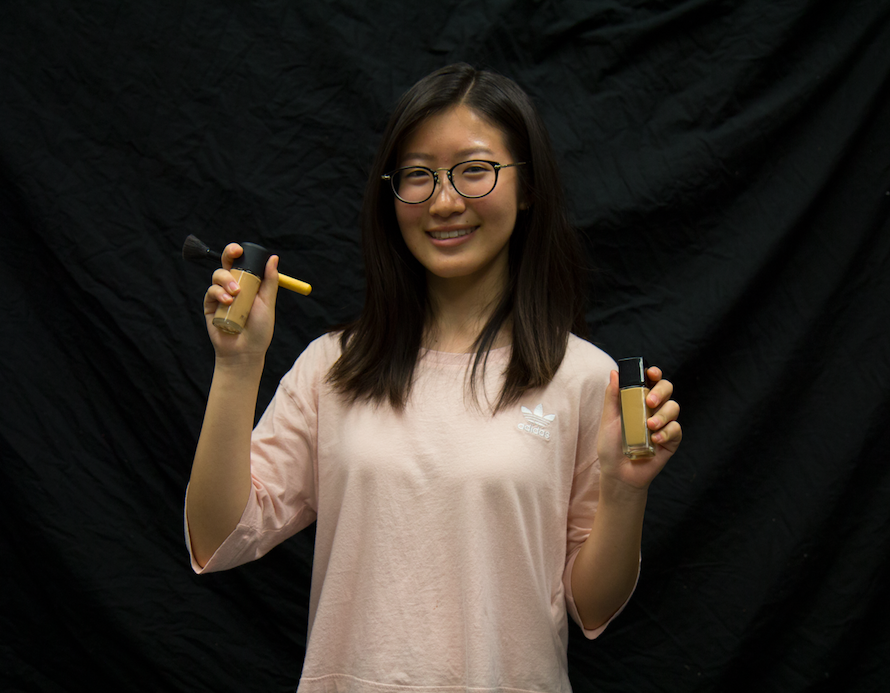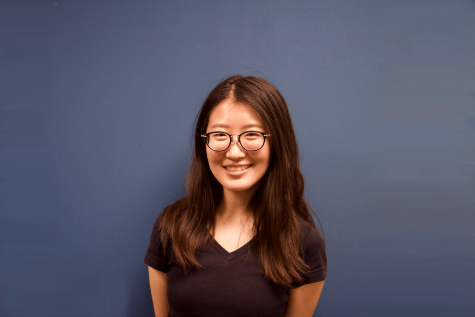Seeking a foundation for change
November 2, 2017
Singer, songwriter, fashion designer, entrepreneur — Rihanna’s growing list of titles may cause assumptions that her new beauty line, Fenty Beauty, is just another instance of a celebrity plastering her name on a company’s products. The makeup line, launched on Sept. 8, carries face products, eyeshadows, lipsticks and makeup tools. According to Fenty Beauty’s website, its products focus on “a wide range of traditionally hard-to-match skin tones,” using formulas that work universally for all skin types and shades “so that women everywhere [will] be included.” Fenty Beauty’s variety of options, with 40 different foundation shades that offer as many darker shades as lighter ones, signifies that it is something more than a celebrity endorsement: it is an effective effort to tackle an increasingly significant issue in the makeup industry and the world — inclusivity.
I remember when I first took an interest in makeup in middle school, walking down the aisles of a local drugstore looking at concealers. The closest match at the drugstore for me was a strange yellow-orange shade that hardly matched my skin tone. Even at a young age, I felt disappointed upon discovering that established companies did not seem to put an effort in accomodating people like me. It seemed that companies believe that as long as their shades had some sort of yellow undertone, they could check off the box that says “caters to Asians,” when in reality, Asian skin tones alone come in wide ranges of undertones, such as warm, cool, or olive, as well as a variation in the shades from pale to tan. As a result, many Asians, like myself, have turned to more expensive makeup or Asian brands that produce shades meant only for Asian skin tones. These options, however, are not as easily accessible for purchase, both in terms of location and cost.
My struggle does not only apply to other Asians, but to other underrepresented minorities as well. And while many companies have recognized this problem and attempt to address it, the reason why Fenty Beauty’s efforts have received attention and praise is simple: its foundations actually match diverse skin tones, while many other brands carry numerous lighter shades that look almost identical, yet only a few darker shades. Following the release of Fenty Beauty’s foundation, many of its darker shades sold out. While its $34 price tag is considerably more expensive than drugstore products, customers are willing to dish out more money for this foundation rather than trying several other foundations without finding a true match.
Another brand, Huda Beauty, also recently released a 30-shade foundation line with a similar all-inclusive approach. It immediately received positive feedback, and like Fenty Beauty’s foundations, is selling out in stores. The demand for inclusive products is undeniably real, and Fenty Beauty and Huda Beauty’s efforts are just the beginning of a bigger movement.
The way makeup companies fail to accommodate different skin tones in their products reflects their attitudes toward race, and it is unacceptable that large groups of people are still struggling to find themselves properly represented in everyday products. Though arguing about makeup may not seem like a significant issue, seeing myself misrepresented largely impacted my confidence in my ethnical identity, and arguably others as well. A revolutionary change won’t happen overnight, but Fenty Beauty shows that successful steps are being taken by bringing diversity to the makeup market that will hopefully instigate change in other markets as well.




























































